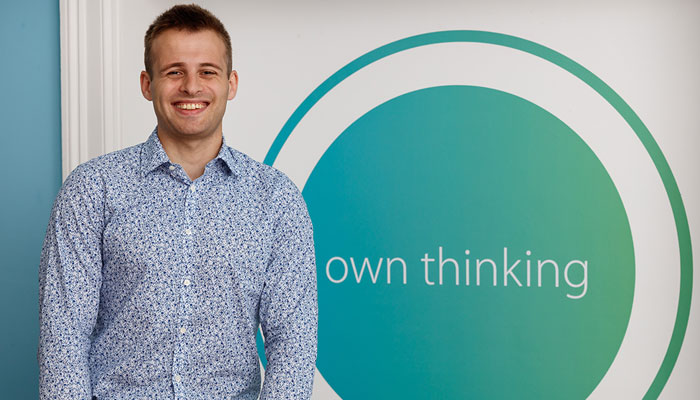Open Innovation and your intellectual property rights

Recently, growing attention has been devoted to the concept of Open Innovation, both in academia as well as in industry. Here, Matthew Veale, Senior Trainee Patent Attorney at Wynne-Jones IP covers what Open Innovation is and what it means for you and your intellectual property rights.
What is Open Innovation?
Open Innovation is the development of innovative solutions made on the basis of collaboration between a number of parties. It has the advantages of shortening the time to innovate, sharing risks, and reducing costs.
Open Innovation offers a different model to the historical closed model where the entire innovative process is carried out internally by companies, often in secret.
There have been misconceptions that Open Innovation and owning Intellectual Property Rights are mutually exclusive, when in reality they positively complement each other. Open Innovation is a term used to promote innovating with collaborators by ‘sharing risk and sharing reward’ – the problem is caused by what the term ‘sharing’ means.
An example of headline Open Innovation initiatives is when Tesla decided to open up their patent portfolio to the world – the move has been subject of much debate. It can be argued that they have given away their greatest competitive advantage or alternatively, it can be argued that they have shortened their innovation cycle by removing the disclosure stage of discussions with potential collaborators; the truth probably lies somewhere in between.
Comparison of Open and Closed Innovation

IP and Open Innovation
In the context of Open Innovation, intellectual property plays a new role, which no longer reflects the historical defensive mechanism adopted by companies.
For example, to date, companies have been using their patents to block competitors and operate on the market based on the notion of a patent as a negative right to exclude others rather than to enable innovation. Yet, on the contrary, patent protection assists companies to commercialise their solutions and safely enter into Open Innovation agreements, with limited risks of seeing their assets appropriated by their collaborators.
Indeed, patents are extremely important for the innovative process since they protect and disclose at the same time.
Open Innovation is facilitated by effective intellectual property protection. Clear ownership helps in sharing of knowledge, as collaborators are more willing to enter into transactions and agreements to exchange their inventions.
Strong intellectual property strategies are of utmost importance for small entities with very specific R&D capabilities and which require larger entities to commercialise their products. They would fail to attract collaborators and investors if lacking a robust intellectual property strategy.
Because of the nature of Open Innovation, efficient intellectual property management is essential for the success of the project. Sharing knowledge, technology and expertise between collaborators is an enormous benefit that could nevertheless entail a risk of loss of such assets and free-riding, if not managed effectively.
Accordingly, a co-development of activities carried out in an Open Innovation environment requires a clear agreement on ownership of any resultant IP, particularly where parties to the development have no previously registered IP in the relevant activity.
Are you considering entering into Open Innovation?
Questions you should ask yourself:
- What will happen to my concept?
- How can I protect my products if I do not fully own the IP rights?
- How can I protect my trade secrets and know-how from being lost within such a process?
- What is happening to my position in the long run by sharing or licencing my IP rights?
If you are considering engaging in Open Innovation, you will need to assess the impact of your decisions now and in the future. Such arrangements can be very rewarding, but you should also remember to protect yourself.
To speak to Wynne-Jones IP about Open Innovation, or any other IP-related issue, email Victor Caddy at [email protected] or call 01242 267600.























